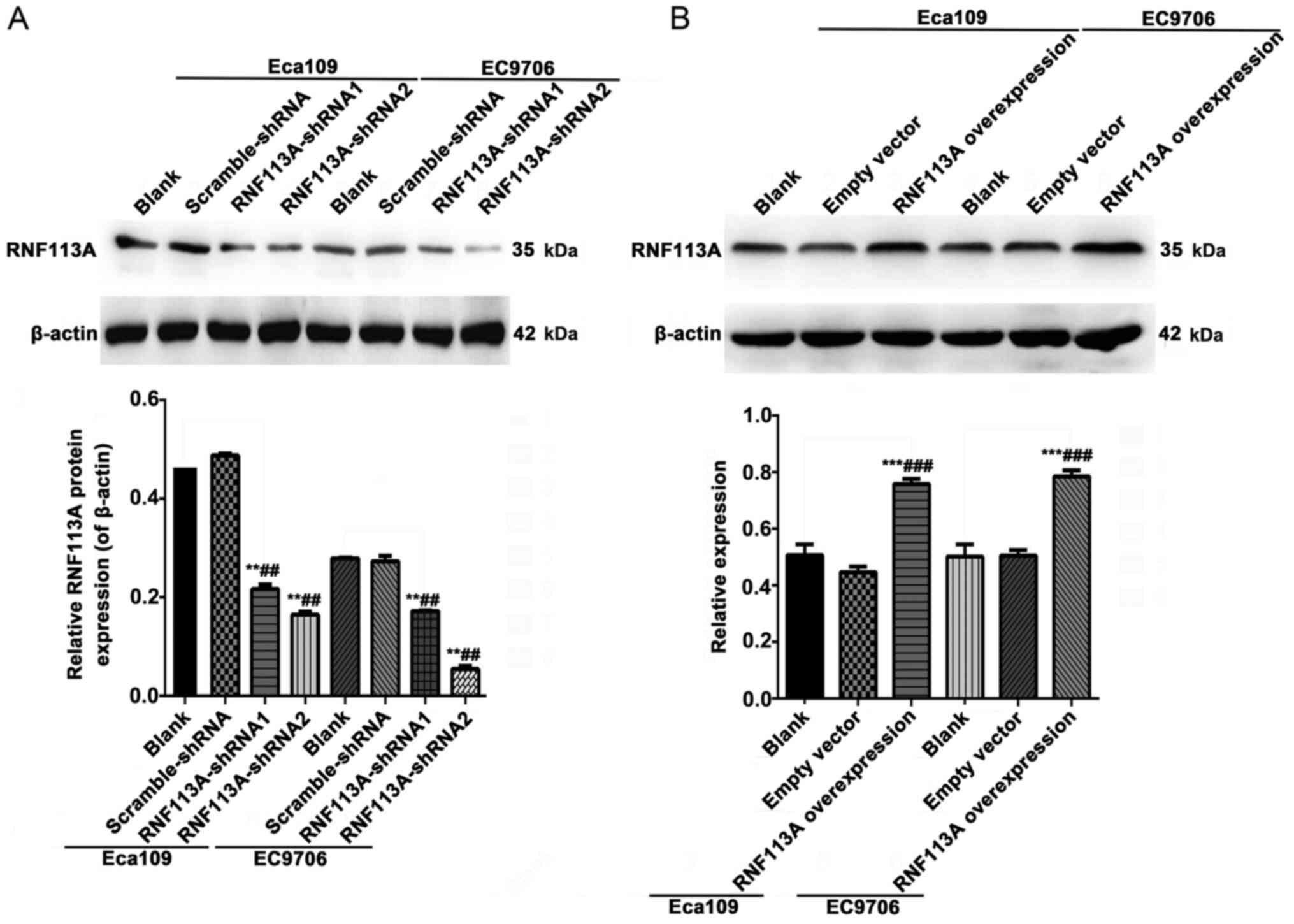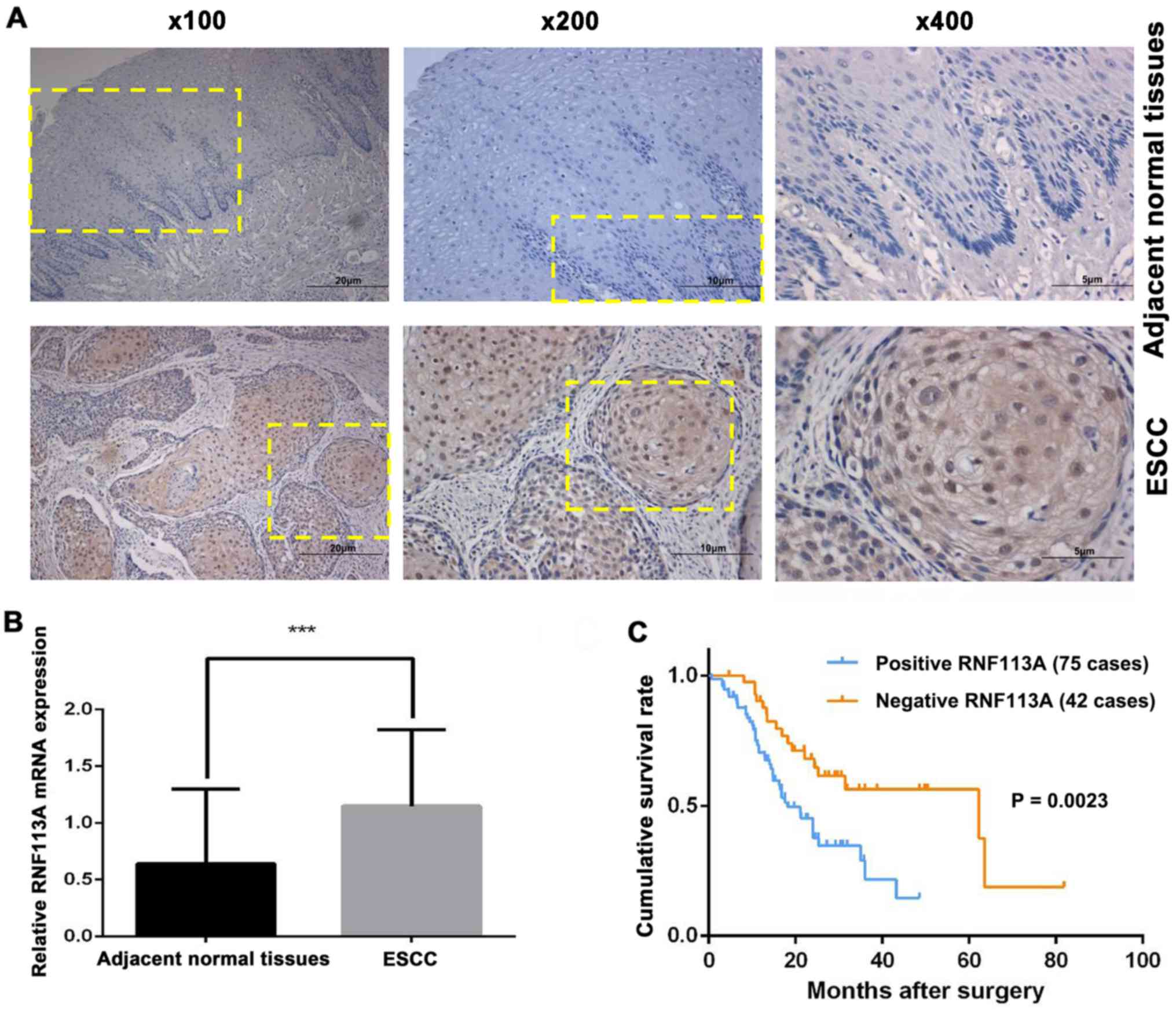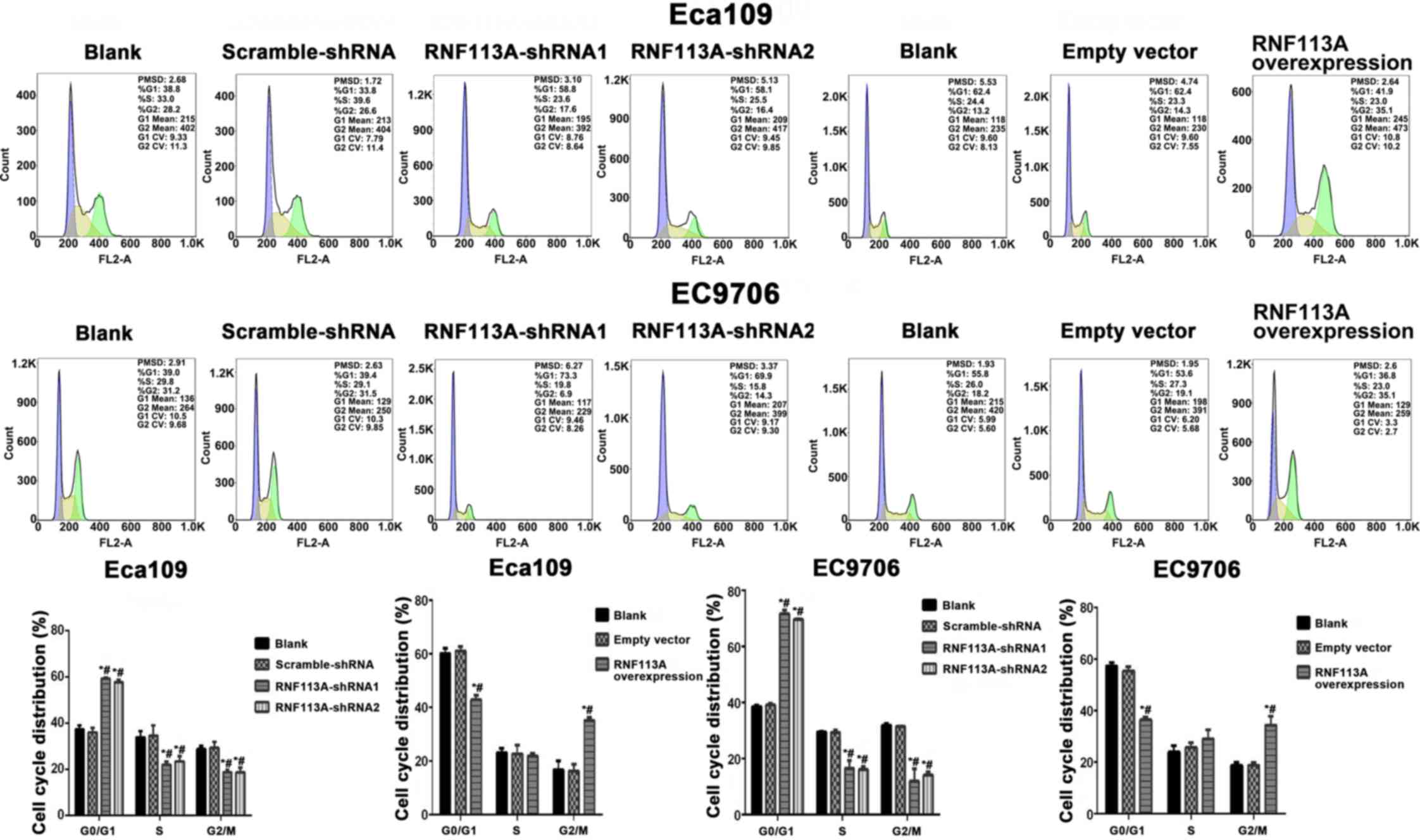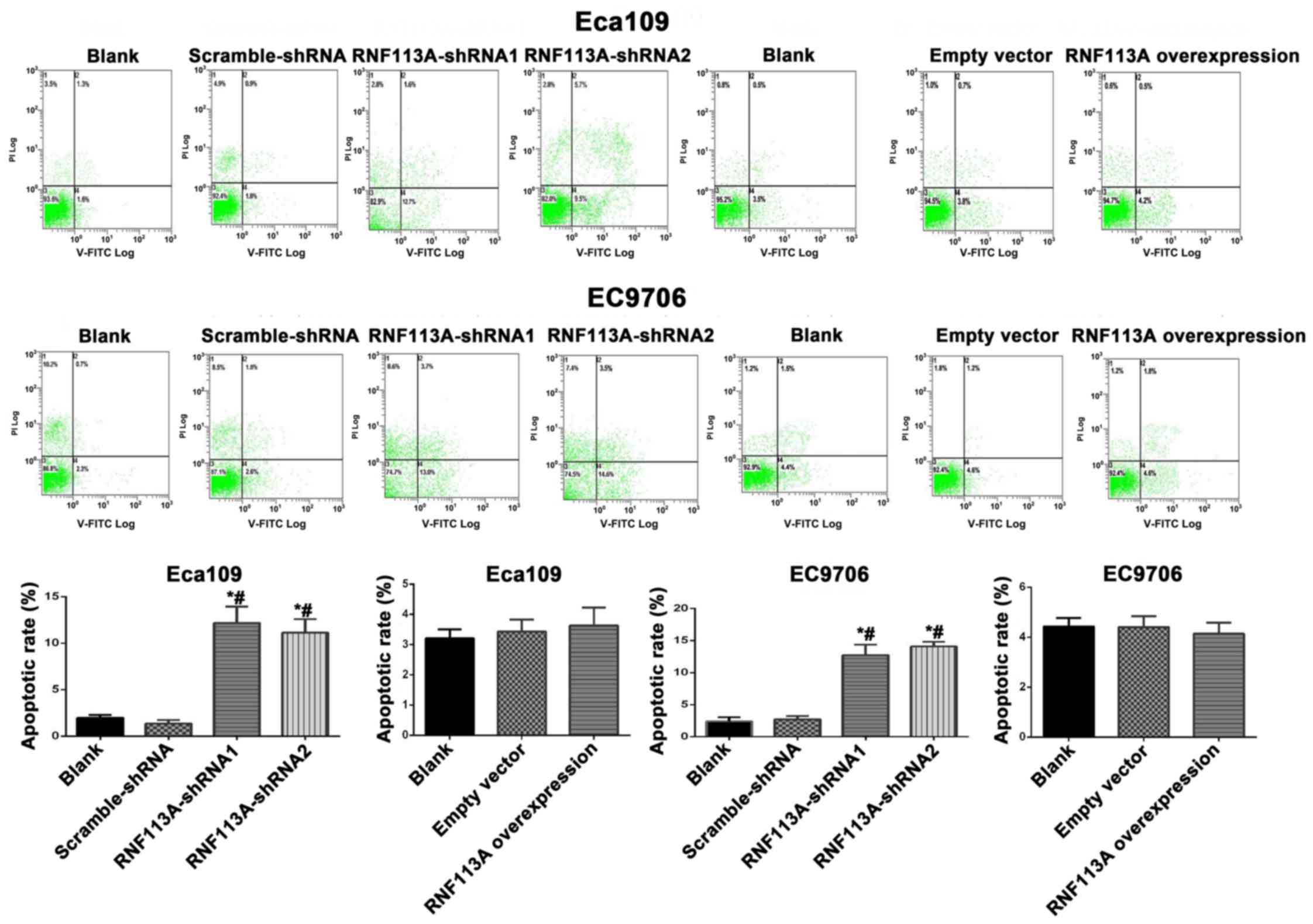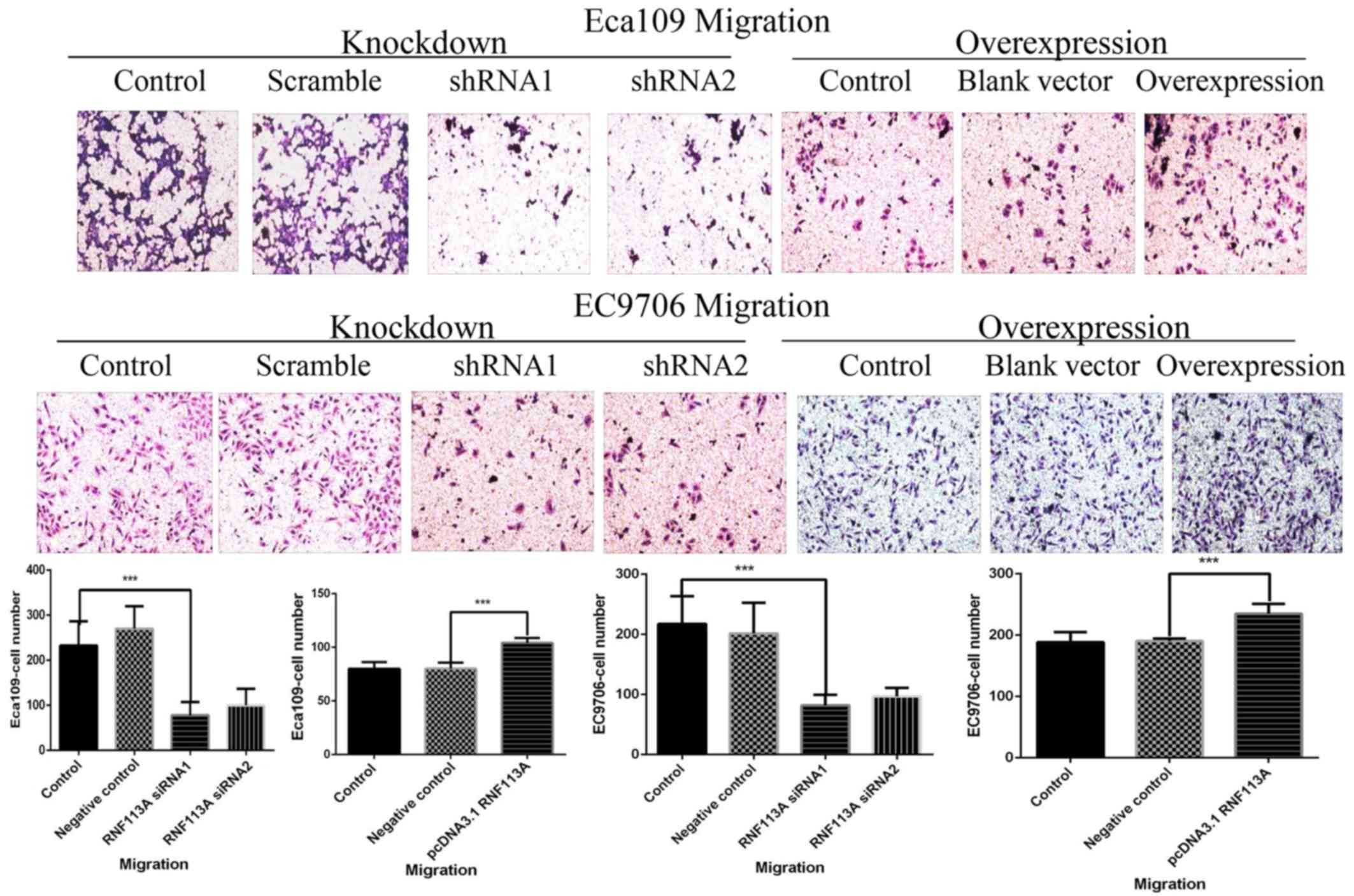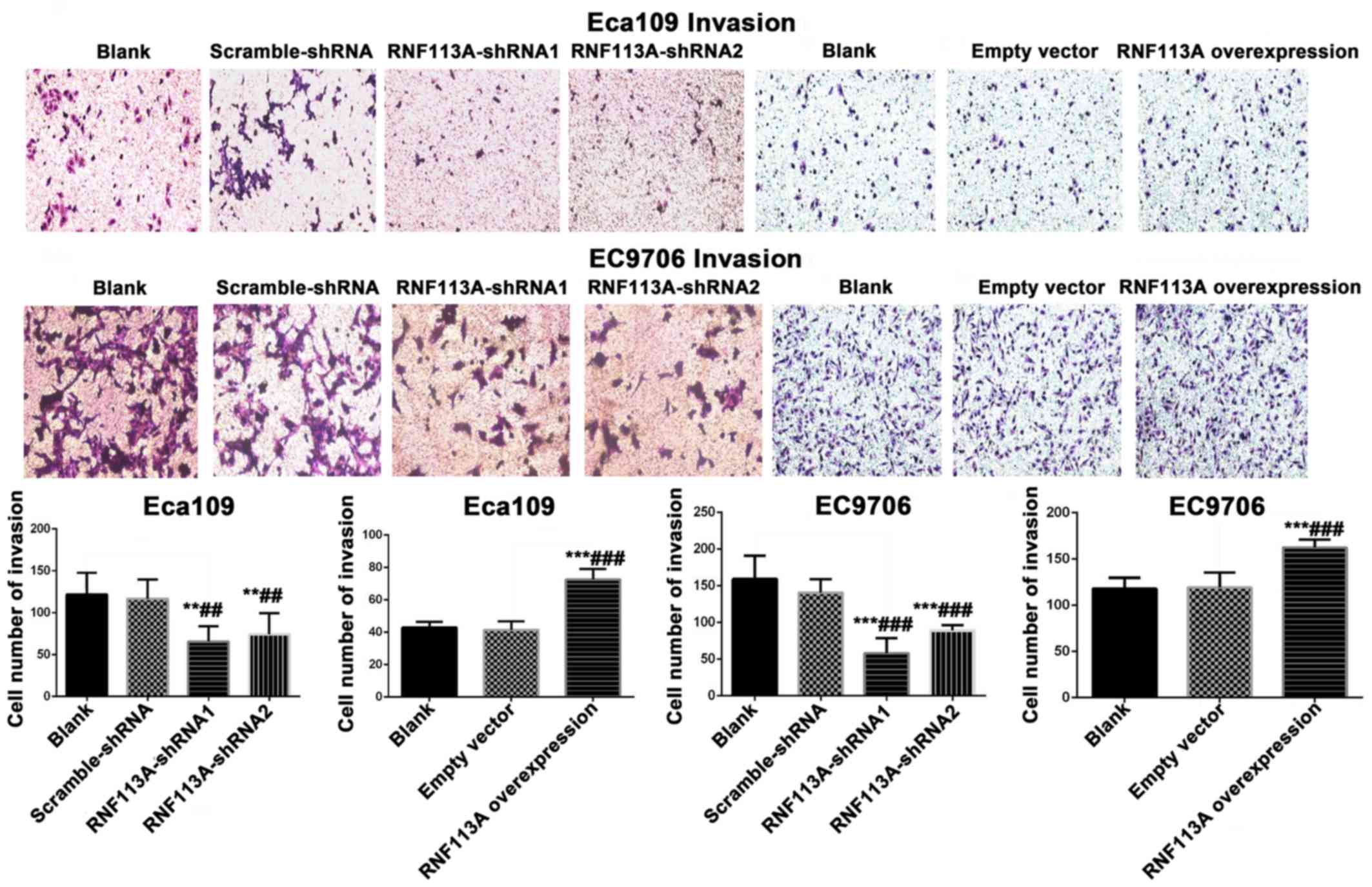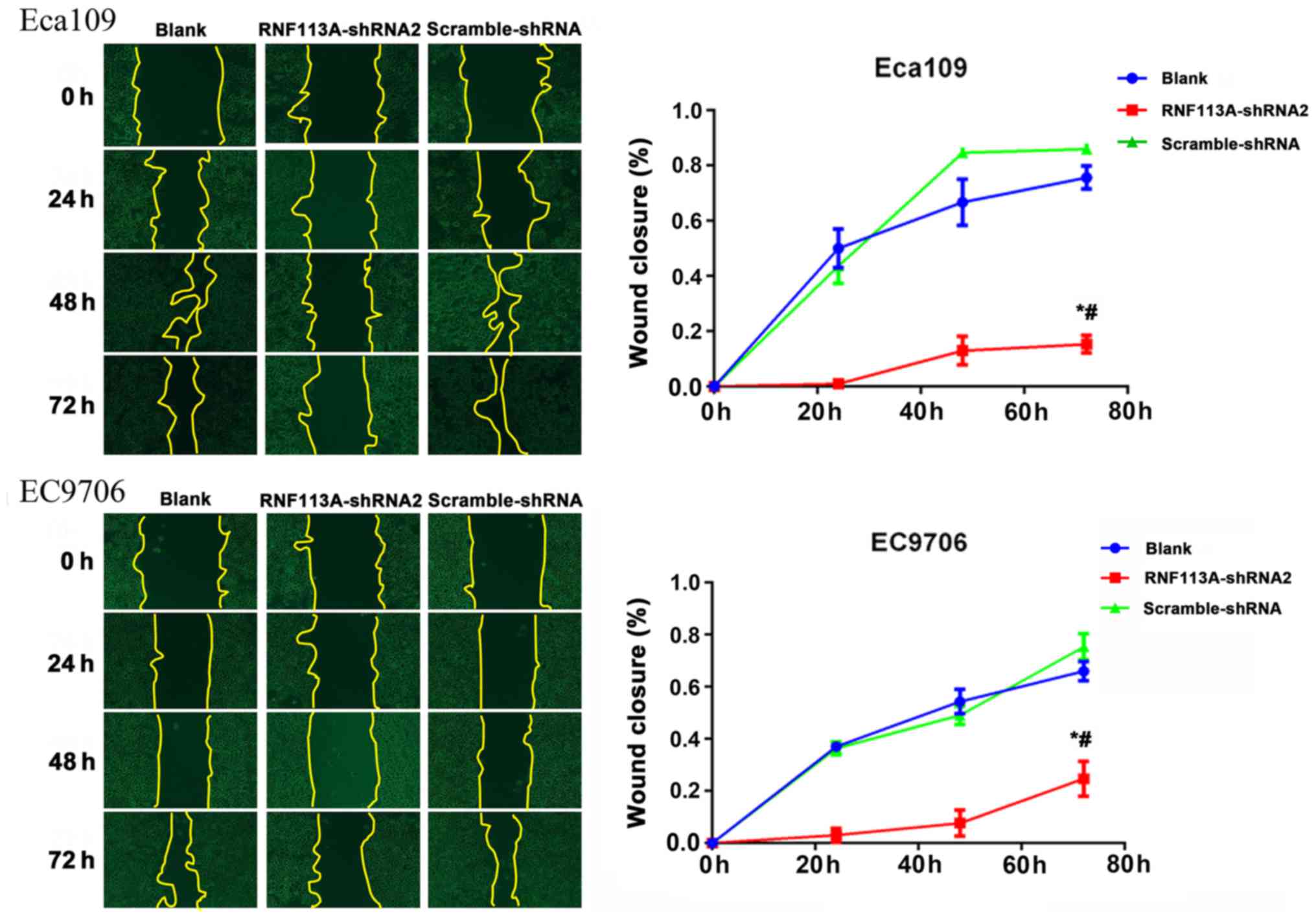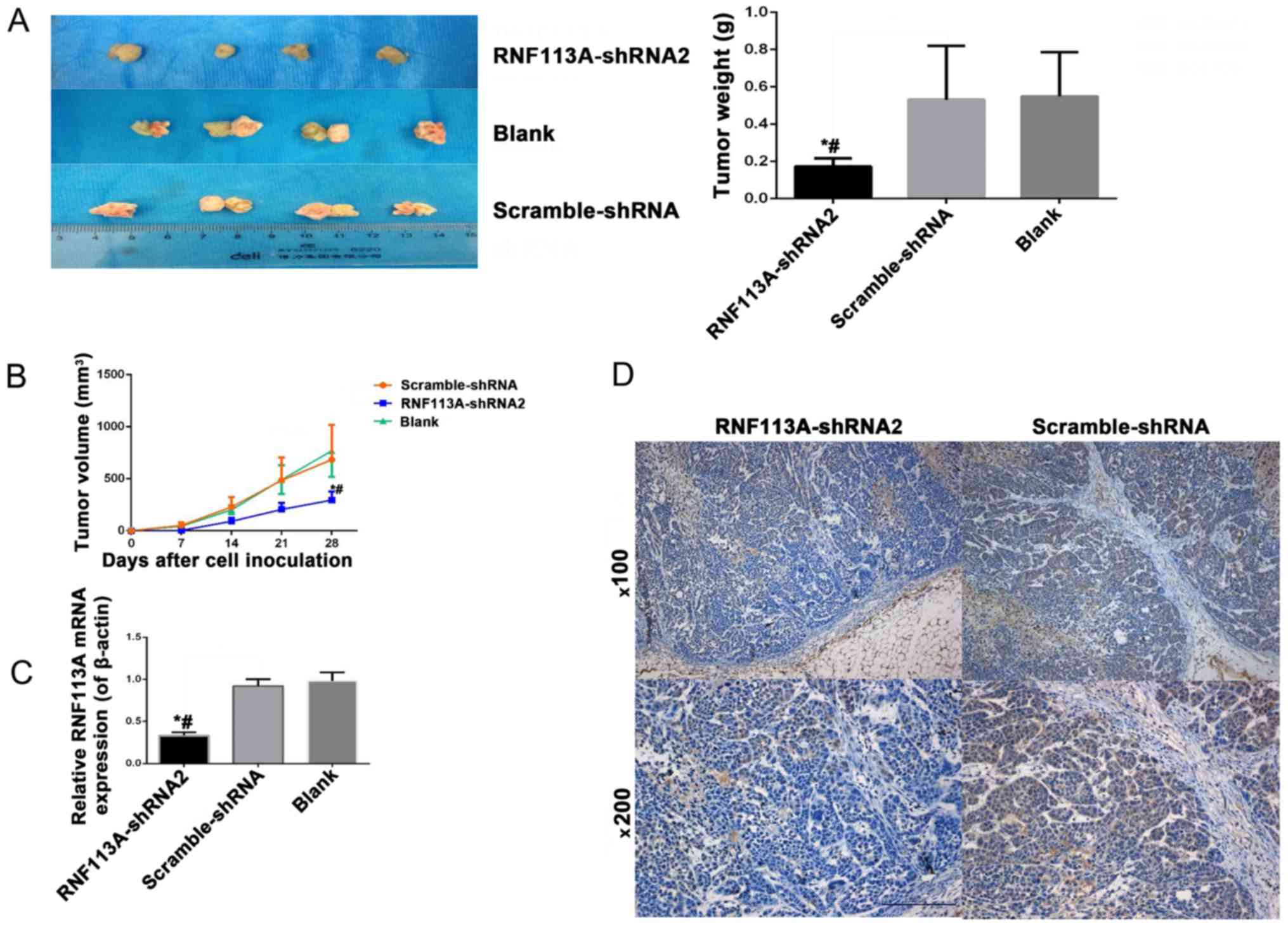|
1
|
Parkin DM, Pisani P and Ferlay J: Global
cancer statistics. CA Cancer J Clin. 49:33–64. 311999. View Article : Google Scholar : PubMed/NCBI
|
|
2
|
Chen W, Zheng R, Zeng H, Zhang S and He J:
Annual report on status of cancer in China, 2011. Chin J Cancer
Res. 27:2–12. 2015. View Article : Google Scholar : PubMed/NCBI
|
|
3
|
Yang CS, Chen X and Tu S: Etiology and
prevention of esophageal cancer. Gastrointest Tumors. 3:3–16. 2016.
View Article : Google Scholar : PubMed/NCBI
|
|
4
|
Siegel RL, Miller KD and Jemal A: Cancer
Statistics, 2017. CA Cancer J Clin. 67:7–30. 2017. View Article : Google Scholar : PubMed/NCBI
|
|
5
|
Arnold M, Soerjomataram I, Ferlay J and
Forman D: Global incidence of oesophageal cancer by histological
subtype in 2012. Gut. 64:381–387. 2015. View Article : Google Scholar
|
|
6
|
Ainiwaer J, Li DS and Zhang L:
Investigation on prevalence of esophageal cancer during 2005–2008
in Yili of Xinjiang, China. Xinjiang Medical J. 41:112–114.
2011.
|
|
7
|
NCCN Clinical Practice Guidelines in
Oncology (NCCN Guidelines): Esophageal and Esophagogastric Junction
Cancers. (Version 2.2017). National Comprehensive Cancer Network;
Fort Washington: 2017
|
|
8
|
Mukhopadhyay D and Riezman H:
Proteasome-independent functions of ubiquitin in endocytosis and
signaling. Science. 315:201–205. 2007. View Article : Google Scholar : PubMed/NCBI
|
|
9
|
Sullivan JA, Shirasu K and Deng XW: The
diverse roles of ubiquitin and the 26S proteasome in the life of
plants. Nat Rev Genet. 4:948–958. 2003. View Article : Google Scholar : PubMed/NCBI
|
|
10
|
Xue Z, Wu X, Chen X, Liu Y, Wang X, Wu K,
Nie Y and Fan D: Mesenchymal stem cells promote epithelial to
mesenchymal transition and metastasis in gastric cancer though
paracrine cues and close physical contact. J Cell Biochem.
116:618–627. 2015. View Article : Google Scholar
|
|
11
|
Díaz VM, Viñas-Castells R and García de
Herreros A: Regulation of the protein stability of EMT
transcription factors. Cell Adhes Migr. 8:418–428. 2014. View Article : Google Scholar
|
|
12
|
Corbett MA, Dudding-Byth T, Crock PA,
Botta E, Christie LM, Nardo T, Caligiuri G, Hobson L, Boyle J,
Mansour A, et al: A novel X-linked trichothiodystrophy associated
with a nonsense mutation in RNF113A. J Med Genet. 52:269–274. 2015.
View Article : Google Scholar : PubMed/NCBI
|
|
13
|
Frattini A, Faranda S, Bagnasco L,
Patrosso C, Nulli P, Zucchi I and Vezzoni P: Identification of a
new member (ZNF183) of the Ring finger gene family in Xq24-25.
Gene. 192:291–298. 1997. View Article : Google Scholar : PubMed/NCBI
|
|
14
|
Korneta I, Magnus M and Bujnicki JM:
Structural bioinformatics of the human spliceosomal proteome.
Nucleic Acids Res. 40:7046–7065. 2012. View Article : Google Scholar : PubMed/NCBI
|
|
15
|
Carney TD, Struck AJ and Doe CQ: midlife
crisis encodes a conserved zinc-finger protein required to maintain
neuronal differentiation in Drosophila. Development. 140:4155–4164.
2013. View Article : Google Scholar : PubMed/NCBI
|
|
16
|
Bromberg KD, Kluger HM, Delaunay A, Abbas
S, DiVito KA, Krajewski S and Ronai Z: Increased expression of the
E3 ubiquitin ligase RNF5 is associated with decreased survival in
breast cancer. Cancer Res. 67:8172–8179. 2007. View Article : Google Scholar : PubMed/NCBI
|
|
17
|
Chen C, Sun X, Guo P, Dong XY, Sethi P,
Zhou W, Zhou Z, Petros J, Frierson HF Jr, Vessella RL, et al:
Ubiquitin E3 ligase WWP1 as an oncogenic factor in human prostate
cancer. Oncogene. 26:2386–2394. 2007. View Article : Google Scholar
|
|
18
|
Amsterdam A, Nissen RM, Sun Z, Swindell
EC, Farrington S and Hopkins N: Identification of 315 genes
essential for early zebrafish development. Proc Natl Acad Sci USA.
101:12792–12797. 2004. View Article : Google Scholar : PubMed/NCBI
|
|
19
|
Lee H, Alpi AF, Park MS, Rose A and Koo
HS: C. elegans ring finger protein RNF-113 is involved in
interstrand DNA crosslink repair and interacts with a RAD51C
homolog. PLoS One. 8:e600712013. View Article : Google Scholar : PubMed/NCBI
|
|
20
|
Pellagatti A, Esoof N, Watkins F, Langford
CF, Vetrie D, Campbell LJ, Fidler C, Cavenagh JD, Eagleton H,
Gordon P, et al: Gene expression profiling in the myelodysplastic
syndromes using cDNA microarray technology. Br J Haematol.
125:576–583. 2004. View Article : Google Scholar : PubMed/NCBI
|
|
21
|
Heath-Brown N: International Union Against
Cancer. The Stateman's Yearbook 2016. Palgrave MacMillan; London:
2015
|
|
22
|
Ma JQ, Tuersun H, Jiao SJ, Zheng JH, Xiao
JB and Hasim A: Functional role of NRF2 in cervical carcinogenesis.
PLoS One. 10:e01338762015. View Article : Google Scholar : PubMed/NCBI
|
|
23
|
Sinicrope FA, Ruan SB, Cleary KR, Stephens
LC, Lee JJ and Levin B: Bcl-2 and p53 oncoprotein expression during
colorectal tumorigenesis. Cancer Res. 55:237–241. 1995.PubMed/NCBI
|
|
24
|
Zhu J, Li H, Ma J, Huang H, Qin J and Li
Y: PTPN9 promotes cell proliferation and invasion in Eca109 cells
and is negatively regulated by microRNA-126. Oncol Lett.
14:1419–1426. 2017. View Article : Google Scholar : PubMed/NCBI
|
|
25
|
Chen HX, Wang S, Wang Z, Zhang ZP and Shi
SS: Overexpression of RUNX3 inhibits malignant behaviour of Eca109
cells in vitro and in vivo. Asian Pac J Cancer Prev. 15:1531–1537.
2014. View Article : Google Scholar
|
|
26
|
Li S, Wang F, Qu Y, Chen X, Gao M, Yang J,
Zhang D, Zhang N, Li W and Liu H: HDAC2 regulates cell
proliferation, cell cycle progression and cell apoptosis in
esophageal squamous cell carcinoma EC9706 cells. Oncol Lett.
13:403–409. 2017. View Article : Google Scholar : PubMed/NCBI
|
|
27
|
Sun Z, Ji N, Bi M, Wang S, Liu X and Wang
Z: PTEN gene is infrequently hypermethylated in human esophageal
squamous cell carcinoma. Tumour Biol. 36:5849–5857. 2015.
View Article : Google Scholar : PubMed/NCBI
|
|
28
|
Wang T, Xuan X, Pian L, Gao P, Hu H, Zheng
Y, Zang W and Zhao G: Notch-1-mediated esophageal carcinoma EC-9706
cell invasion and metastasis by inducing epithelial-mesenchymal
transition through Snail. Tumour Biol. 35:1193–1201. 2014.
View Article : Google Scholar
|
|
29
|
Cory G: Scratch-wound assay. Methods Mol
Biol. 769:25–30. 2011. View Article : Google Scholar : PubMed/NCBI
|
|
30
|
Jonkman JE, Cathcart JA, Xu F, Bartolini
ME, Amon JE, Stevens KM and Colarusso P: An introduction to the
wound healing assay using live-cell microscopy. Cell Adhes Migr.
8:440–451. 2014. View Article : Google Scholar
|
|
31
|
Sugiura T, Yamaguchi A and Miyamoto K: A
cancer-associated RING finger protein, RNF43, is a ubiquitin ligase
that interacts with a nuclear protein, HAP95. Exp Cell Res.
314:1519–1528. 2008. View Article : Google Scholar : PubMed/NCBI
|
|
32
|
Zhu J, Zhao C, Zhuang T, Jonsson P, Sinha
I, Williams C, Strömblad S and Dahlman-Wright K: RING finger
protein 31 promotes p53 degradation in breast cancer cells.
Oncogene. 35:1955–1964. 2016. View Article : Google Scholar :
|
|
33
|
Horie K, Urano T, Ikeda K and Inoue S:
Estrogen-responsive RING finger protein controls breast cancer
growth. J Steroid Biochem Mol Biol. 85:101–104. 2003. View Article : Google Scholar : PubMed/NCBI
|
|
34
|
Oyanagi H, Takenaka K, Ishikawa S, Kawano
Y, Adachi Y, Ueda K, Wada H and Tanaka F: Expression of LUN gene
that encodes a novel RING finger protein is correlated with
development and progression of non-small cell lung cancer. Lung
Cancer. 46:21–28. 2004. View Article : Google Scholar : PubMed/NCBI
|
|
35
|
Zhang Y, Zhang Y, Yun H, Lai R and Su M:
Correlation of STAT1 with apoptosis and cell-cycle markers in
esophageal squamous cell carcinoma. PLoS One. 9:e1139282014.
View Article : Google Scholar : PubMed/NCBI
|
|
36
|
Bozzuto G, Ruggieri P and Molinari A:
Molecular aspects of tumor cell migration and invasion. Ann Ist
Super Sanita. 46:66–80. 2010.PubMed/NCBI
|
|
37
|
Friedl P and Wolf K: Tumour-cell invasion
and migration: Diversity and escape mechanisms. Nat Rev Cancer.
3:362–374. 2003. View Article : Google Scholar : PubMed/NCBI
|
|
38
|
Yonemori K, Seki N, Kurahara H, Osako Y,
Idichi T, Arai T, Koshizuka K, Kita Y, Maemura K and Natsugoe S:
ZFP36L2 promotes cancer cell aggressiveness and is regulated by
antitumor microRNA-375 in pancreatic ductal adenocarcinoma. Cancer
Sci. 108:124–135. 2017. View Article : Google Scholar :
|
|
39
|
Zhang Y and Yang WB: Down-regulation of
tripartite motif protein 59 inhibits proliferation, migration and
invasion in breast cancer cells. Biomed Pharmacother. 89:462–467.
2017. View Article : Google Scholar : PubMed/NCBI
|
|
40
|
Deng J, Liang H, Zhang R, Hou Y, Liu Y,
Ying G, Pan Y and Hao X: Clinical and experimental role of ring
finger protein 180 on lymph node metastasis and survival in gastric
cancer. Br J Surg. 103:407–416. 2016. View Article : Google Scholar : PubMed/NCBI
|
|
41
|
Wang H, Wang Y, Qian L, Wang X, Gu H, Dong
X, Huang S, Jin M, Ge H, Xu C, et al: RNF216 contributes to
proliferation and migration of colorectal cancer via suppressing
BECN1-dependent autophagy. Oncotarget. 7:51174–51183.
2016.PubMed/NCBI
|
|
42
|
Ando N, Kato H, Igaki H, Shinoda M, Ozawa
S, Shimizu H, Nakamura T, Yabusaki H, Aoyama N, Kurita A, et al: A
randomized trial comparing postoperative adjuvant chemotherapy with
cisplatin and 5-fluorouracil versus preoperative chemotherapy for
localized advanced squamous cell carcinoma of the thoracic
esophagus (JCOG9907). Ann Surg Oncol. 19:68–74. 2012. View Article : Google Scholar
|
|
43
|
Lazzari E and Meroni G: TRIM32 ubiquitin
E3 ligase, one enzyme for several pathologies: From muscular
dystrophy to tumours. Int J Biochem Cell Biol. 79:469–477. 2016.
View Article : Google Scholar : PubMed/NCBI
|
|
44
|
Cai W and Yang H: The structure and
regulation of Cullin 2 based E3 ubiquitin ligases and their
biological functions. Cell Div. 11:72016. View Article : Google Scholar : PubMed/NCBI
|
|
45
|
Geng R, Tan X, Wu J, Pan Z, Yi M, Shi W,
Liu R, Yao C, Wang G, Lin J, et al: RNF183 promotes proliferation
and metastasis of colorectal cancer cells via activation of
NF-κB-IL-8 axis. Cell Death Dis. 8:e29942017. View Article : Google Scholar
|
|
46
|
Liu ZY, Cao J, Zhang JT, Xu GL, Li XP,
Wang FT, Ansari KH, Mohamed H and Fan YZ: Ring finger protein 125,
as a potential highly aggressive and unfavorable prognostic
biomarker, promotes the invasion and metastasis of human
gallbladder cancers via activating the TGF-β1-SMAD3-ID1 signaling
pathway. Oncotarget. 8:49897–49914. 2017.PubMed/NCBI
|















